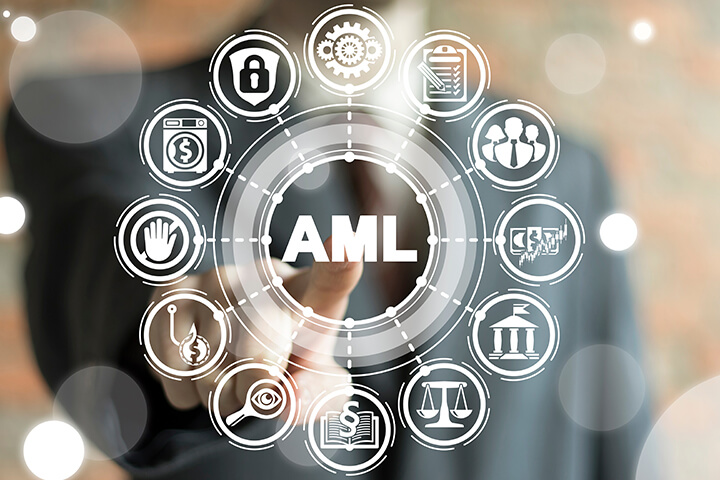As previously outlined on paytechlaw, the legislative process for the adoption of the AML Package of the EU is well underway. The 18th of January has marked another milestone in this regard with the provisional agreement reached between the European Parliament and the Belgian presidency of the Council about certain measures of the EU toolkit to fight money laundering, terrorist financing and sanctions evasion.
Table of Contents
The deal covers certain measures that can be found under the proposal for a 6th Anti-Money Laundering directive as well as under the proposal for an EU “single rulebook” regulation.
Increased powers for the Financial Intelligence Units
A first aspect of the deal is the increased powers of the Financial Intelligence Units (FIUs) when it comes to (i) analysing and detecting money laundering and terrorist financing cases and (ii) suspending suspicious transactions, accounts, or business relationships.
Moreover, FIUs will now be able to coordinate with the future Anti-Money Laundering Authority (AMLA), Europol, Eurojust and the European Public Prosecutor’s office, with “joint analysis” being a key tool for this kind of multi-level coordination.
The FIUs will also have access to a variety of information ranging from national weapons and arms registers and land or real estate registers to information about certain high value assets such as yachts and planes of a value higher than 7.5 million euros.
Harmonised content and access to beneficial owners’ registers
Besides determining that information on beneficial ownership should be available digitally both at national and EU level (Interconnected system of registers), negotiators agreed to further harmonize the access rights to information on beneficial ownership.
Indeed, as a confirmation of a previous ruling from the Court of Justice of the European Union (CJEU), a general access to information pertaining to beneficial ownership as it existed under the 5th AML Directive has been repealed. Beneficial ownership information will instead be restricted to authorities such as competent authorities, supervisory bodies, tax authorities, the AMLA, the European Public Prosecutor’s Office, the European Anti-Fraud Office (OLAF), Europol and Eurojust.
Additionally, people with “legitimate interest” to access beneficial ownership information, such as journalists and higher education institutions, will be granted access.
Finally, in-scope entities will have timely access to the then interconnected registers when performing their customer due diligence, but subject to a fee, according to the provisional agreement.
25% threshold for beneficiary ownership confirmed
When it comes to the definition of beneficial ownership, negotiators agreed to retain the current threshold of 25% regarding shares, voting rights or other beneficial rights in order for a natural person to be considered as a beneficial owner. This shows a reversal of an earlier position by MEPs who had agreed in March 2023 that the beneficial ownership threshold should instead be lowered to 15%.[1]
Limit for cash payments
Following previous discussion regarding the establishment of an EU-wide limit for cash payment, negotiators have agreed on a EUR 10,000 limit for cash payments, whilst allowing Member States with lower limits to maintain them.
The cash limit will be extended to payment services and electronic money providers, but it will not apply to payment between natural persons not acting in a professional function.
New focus on football clubs and ultra-rich individuals
According to the provisional agreement, football clubs and agents will be assimilated to obliged entities and consequently be subject to stricter transparency requirements from 2029 onward. These obligations include the verification of their customer’s identity, the reporting of suspicions to the FIUs and transaction monitoring. Exemptions will be available for football clubs with a yearly turnover of less than 5 million euros over 2 years and who do not belong to the top leagues.
For ultra-rich individuals (minimum EUR 50 million) and their wealth managers (minimum EUR 5 million assets under management), the deal provides for the application of an enhanced due diligence regime due to a higher risk profile.
Introduction of KYC requirements for crypto assets service providers
As part of the deal of the 18th of January, crypto assets service providers (CASPs) will now be required to conduct due diligence when conducting transactions amounting to EUR 1,000 or more on behalf of their customers.
Incidentally, these new KYC requirements for CASPs will be introduced alongside specific enhanced due diligence measures for cross-border correspondent relationships conducted by CASPs. Overall, CASPs will now be obliged entities such as banks.
Location of the AMLA still to be determined
In December 2023, the European Parliament and the Council had already reached an agreement on the creation of the AMLA, without deciding on the seat of the future agency which for the first time will be agreed between the European Parliament and the Council.
9 Member States are still in the race, and joint public hearings are currently being organized where the latter are being assessed based on agreed selection criteria. These include the speed with which AMLA can become operational, the accessibility of the location, as well as job or educational opportunities for the families of the future AMLA civil servants.
The final location of AMLA’s seat will be included in the AMLA regulation and formally adopted.
Next steps
The details of the agreement between the European Parliament and the Council will now be finalised at the level of the EU technical committees. Once approved, the Council and the Parliament will need to formally adopt these texts, which are not yet available, before they are published in the EU’s Official Journal and enter into force.
[1] https://www.europarl.europa.eu/news/en/press-room/20230327IPR78511/new-eu-measures-against-money-laundering-and-terrorist-financing
Autor: Tancrede Montagne & Charles Krier




